Organic cotton clothing is made from fabric that was produced using organic cotton. Organic cotton is a natural fiber that is 100% plant derived. It is non-allergenic, non-irritant, soothing and comforting on the skin. It has high absorbency properties which makes it suitable for a wide range of uses. The main cotton producing countries are India, USA, Turkey, China, Egypt, Syria, Uganda, Peru, Tanzania and West Africa.
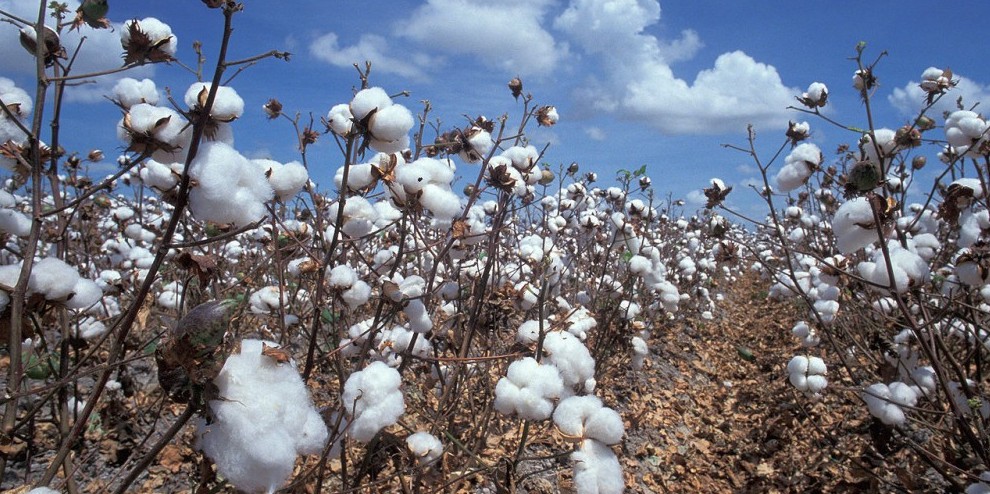
Organic cotton is used widely in clothing and fabrics, footwear, home furnishings (like sheets, towels and bedding), kids and baby products (like nappies, clothes and toys), personal care and hygiene (like sanitary products, make-up removal pads and cotton wool) and even stationary.
The difference between organic cotton and non-organic cotton lies in the way the cotton is grown and treated.
Growing Organic Cotton
Organic cotton is grown from plants and seeds that have not been genetically modified. No synthetic or toxic chemicals, like pesticides and fertilizers, are used during the growing and production cycle. Because no GMO’s (genetically modified organisms) are used, organic soil matter can be built through crop rotation, inter cropping and composting.
Weeds are controlled through physical removal and inter cropping. Bio-controlling of beneficial insects are used to manage pests. Growing organic cotton is better for the environment than non-organic cotton. Crop rotation is practiced to ensure and maintain the soil quality.
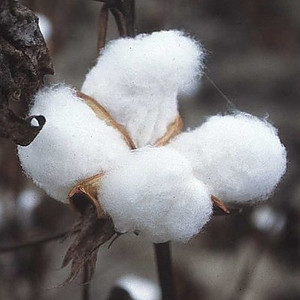
To be able to grow organic cotton, the land has to be detoxified first. For at least 3 years prior to planting organic cotton, no harmful chemicals must be used on the land.
Organic farming methods use natural fertilizers like animal manure or compost, which recycles the nitrogen that is already in the soil rather than adding more. It reduces both pollution and N2O emissions. It also results in soil that has more water retention capacity due to organic matter. Organic cotton farming is in some ways synonymous with farming sustainability.
Although production of organic cotton has dramatically increased over the past 15 years and annual growth is now in double digits, it is still less than 1% of overall worldwide cotton production.
A jeans brand, Nudie Jeans is an environmentally conscious company and they only use organic cotton for the production of their denim jeans.
Related post: Best 100% Organic Cotton Jeans from Nudie Jeans.
Non-organic Cotton Production
Cotton is the dirtiest crop on the planet. Non-organic cotton farming uses more than 15% of pesticides that are used worldwide. Each year up to 77 million cotton workers suffer from poisoning due to the pesticides that are used in non-organic cotton farming. Monsanto, a company that genetically modifies seeds, owns 95% of the cotton seed market in India.
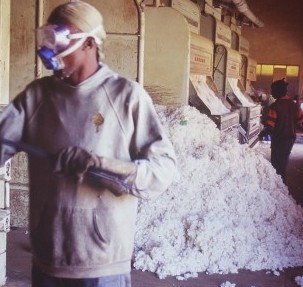 Cotton makes up 50% of the world’s fiber needs, but the majority is grown using toxic chemicals. Chemicals seep into the ground which then contaminates the water. During the conversion of non-organic cotton to fabrics and clothing, many hazardous chemicals are used and added These include petroleum scours, silicone waxes, ammonia, formaldehyde, flame retardants, softeners, heavy metals, bleaches and dyes – to name but a few.
Cotton makes up 50% of the world’s fiber needs, but the majority is grown using toxic chemicals. Chemicals seep into the ground which then contaminates the water. During the conversion of non-organic cotton to fabrics and clothing, many hazardous chemicals are used and added These include petroleum scours, silicone waxes, ammonia, formaldehyde, flame retardants, softeners, heavy metals, bleaches and dyes – to name but a few.
20% of freshwater pollution comes from the treatment and dying of textiles. Polluted water means that there is less oxygen in the water which leads to killing of aquatic animals and harming our aquatic ecosystem.
Exposure to pesticides can lead to birth defects, reproductive disorders and a weaker immune system. It has been found that in some areas farmers will store pesticides in their bedroom or sleeping area.
In many countries cotton is hand-picked, which exposes the workers to harmful toxins if it is non-organic cotton.
The Benefits of Organic Cotton
- By buying and wearing organic cotton clothing you can reduce the carbon footprint. Because no harmful and toxic chemicals are used in the growing and production, there is no damage to the soil.
- Organic cotton clothing is made from a natural fiber that is soothing and harmless to your skin.
- The quality of organic cotton is better than non-organic or conventional cotton.
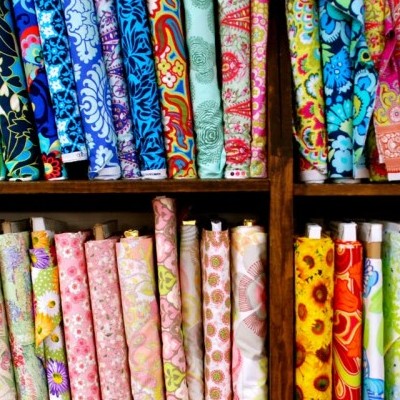
- Organic cotton growing uses 71% less water and 62% less energy than non-organic cotton.
- It is a safer environment for farmers and their families growing organic cotton as they are not exposed to toxins in the field or through food and water.
- Growing organic cotton prevents water contamination and conserves biodiversity.
- The air is cleaner as there is less pollution caused by pesticides
- Organic cotton seed oil is a byproduct that is widely used in snacks and animal feed.
The only negative side is that organic cotton clothing is normally more expensive than non-organic cotton. Organic cotton is more expensive to produce because it is more labour-intensive and the yield is lower than conventional cotton.
What does Naturally Bleached mean?
During the processing of cotton, chlorine bleaches and optical whiteners are often used. Chlorine is quite toxic and has a long half-life, taking a very long time to degrade, and optical whiteners do not degrade at all! On the other hand, hydrogen peroxide degrades easily and safely into oxygen and water and even helps to neutralise the effluent in water from dyeing factories.
Naturally Bleached means that hydrogen peroxide, instead of chlorine, is used to treat the organic cotton and no optical whiteners are added. The end result of Natural Bleaching is a softer white than other because it leaves an attractive amount of the cotton’s natural hue.
Conclusion
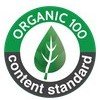
Look for certification labels when buying organic cotton clothing. There are currently 2 independent organic certifications for organic cotton: the Global Organic Textile Standards (GOTS) and Organic Content Standards (OCS). Certification tracks the identity and use of organic cotton through a series of certificates.
- A Farm certificate ensures that the cotton was produced using organic farming methods
- A Transaction certificates tracks the organic cotton when it is passed from one hand to another. For instance if the organic cotton is moved from the spinning company to the weaving company, a transaction certificate will be issued. Soit tracks the organic cottton through all the stages of production.
- A Scope certificate ensures that the company is qualified to produce organic cotton.
So certification can be done on a local, region or global basis.
If you have allergies or suffer from skin diseases, wearing organic cotton clothing will greatly improve those conditions, as you would not be exposing your skin to toxins.
Organic cotton clothing might cost more, but it has substantial benefits for ourselves and our planet over the long term. Organic cotton clothing is also discussed in this post on the 10 Best Organic Cotton Jeans Brands
If you have any suggestions or questions about organic cotton clothing, then please leave them below, and I will get back to you.

Dear Liné,
A simple question for you: why do farmers grow cotton?
If cotton is the dirtiest crop on the planet, if “up to” 77 million workers suffer from poisoning due to pesticides used in cotton farming, if cotton production is associated with birth defects, reproductive disorders and a weaker immune system, if people picking cotton are exposed to harmful toxins, why do farmers grow it?
All agriculture was organic until the 1950s, all farmers know what organic is, and they could grow organic cotton if they wanted to. Yet, less than 1% of world cotton production is organic. Why is that?
If the information you provide about non-organic cotton is even close to correct, I guess we have to conclude that tens of millions of cotton farmers around the world are stupid, and it must be that wise and beneficent writers like yourself are so much better informed than farmers are about how to grow cotton.
Is that what you believe, Liné?
Sincerely,
Terry Townsend
PS. If you are interested (most writers really aren’t) I would be happy to help you find authoritative research on input use, health impacts and environmental outcomes associated with both organic and non-organic cotton. There is a lot less difference between them than you seem to believe.
Dear Terry
And a simple answer is that farmers grow cotton to earn a living. And that goes for most other crops, not just cotton.
So a simple question to you: Are all farmers stupid as you imply in your comment?
Approximately 80% of the cotton industry is farmed in India and China, where most cotton farmers are poor and uneducated. This unfortunately allows manufacturers to take advantage of their lack of education and selling GMO seeds to the farmers. And the majority of these unscrupulous and deceiving seeds companies are your fellow Americans.
GMO seeds are chemically induced and still need fertilizers, as well as pesticides and insecticides, to grow. These chemicals end up in the water and soil and poison the surrounding environment, thus impacting the health of farmers and local agriculture. Unfortunately the poor farmers cannot afford the essential safety equipment to avoid contact with these harmful chemicals.
If you live in the USA, you might have heard about organic farming. But my experience with Americans are that the majority of them don’t have the faintest idea what organic means. So do we conclude that all Americans are stupid? Or are they simply ignorant and uneducated?
I do not claim to be wiser than others, but are aiming to educate and bring knowledge to readers.
So Terry, how do you propose to educate cotton farmers to stop buying GMO seeds and give them the financial means to grow cotton without chemicals?
You seem to have the answers to all.
Liné
This was a fantastic blog. A lot of very good information given,
Thank you for your kind comment and it is good to know that you found the blog informational.
Fantastic piece, well tailored. You sort of cleared my phobias Now I can give it a shot, a big kudos
I am sure you will find organic cotton clothing is kind to your skin, as well as kind to the planet.
thanks for providing such a great article,this article is very help full for me, a lot of thanks
I am pleased to hear that you found the article helpful.
I have learned a lot from your article and I’m looking forward to apply
I am pleased to hear that you have benefitted from the information about organic cotton clothing.
Living in India and having seen some of the problems with chemicals being used in cotton farming, organic cotton is the only choice.
Organic cotton is better for your skin, the growers and the environment. Thanks for sharing your sentiments.
thanks for providing such a great article,this article is very help full for me, a lot of thanks
I am pleased to hear that you found the information helpful.
Hi! Your post is really informative. I like it.
Thank you for your kind comment.
Hi! I really like your content. Your post is really informative.
It is good to know that you found the content informative.
Wow, I don’t think I have ever seen a carefully crafted article on organic cotton like this one! Thanks for all the useful information! Personally, I enjoy organic cotton, especially cotton sheets. I think that it is amazing when it touches my skin! I also like the fact that consuming organic cotton can help improving the living conditions of local farmers. Thanks once again for this wonderful piece! Elodie
Organic cotton clothing and fabric is soft and kind to your skin and also better for the environment. Using cotton linen is indeed much better than synthetic textiles.
It’s crazy where the internet takes you when you’re on it for several hours haha. This is crazy! I really cannot believe there was so much to organic cotton clothing. This has been a very interesting read indeed and I am glad that my random internet journey has brought me here haha. I had no idea there so many substantial benefits to it and that it was so beneficial for all!
Organic cotton is better for your health and those that grow and work with it, while also better for the environment.
Nice Article ??? ??
Thank you and you are welcome
I have learnt a lot from this article. I didnt know that there were many toxic chemicals in our clothing. It is important that we look closely at labels when purchasing clothing because this can help us remain safe in our clothes. Non organic clothing seems to be causing a lot of harm to people and to the environment. What other materials are safe to wear and what other materials are toxic?
I will be adding to the website and bamboo would be one of the fibers I will cover
My grandmother has many problems with allergies to material. Getting her clothing that does not irritate her skin is a real problem sometimes. Not just her clothing, but her sheets and bedding too. Your post is a real gem with all the great useful information. I like that these clothes are non-allergenic, non-irritant, soothing and comforting on the skin.
Organic is always best, same with free range, and all natural. I am all for reducing my carbon footprint.
Your information on Non-organic Cotton Production is great, really eye opening. All the dangers are incredible.
Also all your information on organic cotton is valuable. Thank you for a great useful post.
Thank you Marlene, I plan on doing an article on natural textile fibers as bamboo is another fabric that is beautiful on your skin
Nice writeup, I know more about cotton production and the differences between natural and non natural way of cotton production and the hazards. How ever I would have loved to know more about what could be done to reduce or eliminate the exposure of about 77 million people who are exposed to various hazards in the production of cotton using the non natural way
Hi Ibrahim, I’m focusing on environmentally friendly products to start with, but plan on publishing an article on the toxins used in the textile industry
Your article on What is Organic Cotton is very enlightening. I never knew there was anything like organic or inorganic cotton.
I wish most cotton farmers can adopt the organic cotton farming style, because the benefits are towering over the other way of growing cotton.
I now have a consciousness that I might be hurting myself and the ecosystem by patronising these inorganically produced cotton clothes.
Once you discover the beauty of wearing and using organic textiles, you will love it
There is no doubt this post is very detailed and Informative. This is a thorough and insightful content. There are so many useful tips on this page that I had to bookmark in order to checkback and gain extensively from the writeup.. I have read about organic cotton clothing but I haven’t tasted its benefits this much, This is an eye ooener for me and I must attest to the fact that I learnt alot
Thank you Tracy, organic cotton is so much softer than the conventional type